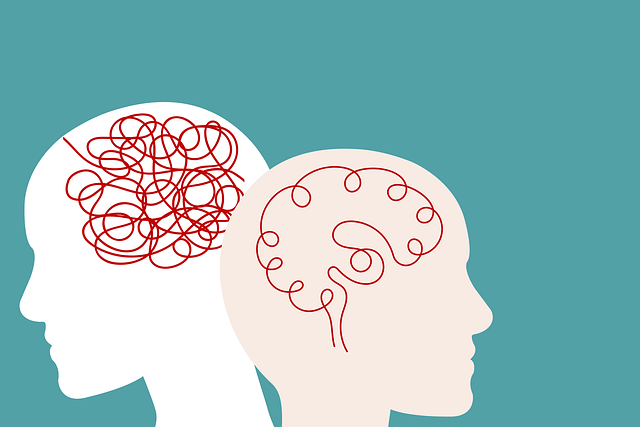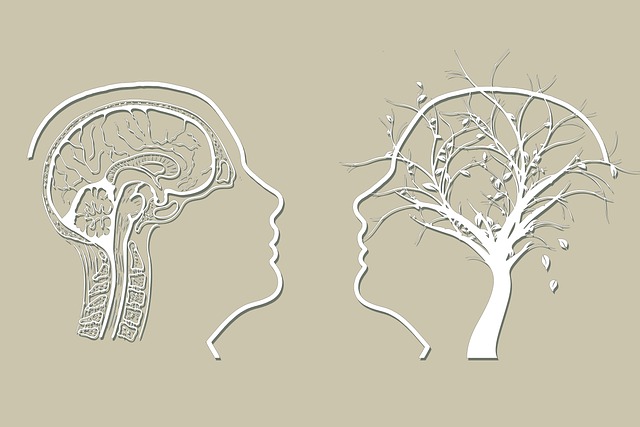Media representation of mental health significantly impacts public perception, with accurate and sensitive portrayals reducing stigma and encouraging early intervention. Stereotypes and misinformation can marginalize specific communities and discourage help-seeking. Effective risk management for professionals depends on accurate media representation. Organizations like Englewood Eating Disorders Therapy play a crucial role in providing specialized care and challenging stereotypes through evidence-based practices and cultural competency training, promoting empathetic storytelling that humanizes mental health issues. Collaboration between media outlets and healthcare providers is essential to ensure factual portrayals and foster understanding among audiences.
In today’s media-saturated world, accurate representation of mental illness is crucial. This article explores how media portrayal impacts mental health, focusing on eating disorders as a case study. We delve into the harmful effects of stereotypes and offer solutions to promote compassionate media content.
Sections include: understanding the profound influence of media, the vital role of therapy and support networks in challenging stereotypes, and practical strategies for encouraging accurate representations, like those provided by Englewood Eating Disorders Therapy.
- Understanding the Impact of Media Representation on Mental Health
- The Role of Therapy and Support Networks in Combating Stereotypes
- Strategies for Promoting Accurate and Compassionate Media Portrayals of Eating Disorders
Understanding the Impact of Media Representation on Mental Health

Media representation plays a pivotal role in shaping societal perceptions and understanding of mental health issues. The way mental illness is portrayed in films, television shows, and news media can significantly impact public opinion and even influence individuals’ behaviors towards those suffering from such conditions. When media depicts mental illnesses accurately and with sensitivity, it can reduce the stigma associated with seeking help, encouraging early intervention and better support systems. However, stereotypical or inaccurate representations can exacerbate existing challenges, leading to misinformed judgments and potential harm.
For instance, a lack of diverse representation in media often contributes to the marginalization of specific communities’ mental health struggles. This can be particularly concerning for organizations like Englewood Eating Disorders Therapy, which aim to provide specialized care for diverse populations. By showcasing various racial, ethnic, and socio-economic backgrounds struggling with mental health issues, media has the power to foster empathy and understanding. Conversely, inadequate or negative portrayals may discourage individuals from sharing their experiences and seeking professional assistance, hindering essential conversations around depression prevention and stress management workshops organization. Effective risk management planning for mental health professionals also relies on accurate media representation to ensure they receive the necessary support and training to handle such cases.
The Role of Therapy and Support Networks in Combating Stereotypes

The representation of mental illness in media plays a pivotal role in shaping public perception and understanding. Often, stereotypes and misinformation prevail, leading to stigmatization and marginalization of individuals struggling with various conditions. However, integrating therapy and fostering support networks can serve as powerful tools to combat these negative portrayals. Engaging in open conversations about mental health allows for the humanization of these issues, showcasing that individuals with eating disorders or other mental illnesses are more than their diagnoses.
Therapy sessions equipped with evidence-based practices can help challenge stereotypes by providing an authentic glimpse into the complex nature of mental wellness. Healthcare providers trained in cultural competency can offer tailored care, ensuring accurate risk assessments and effective interventions. This, in turn, promotes empathetic storytelling in media, reflecting the diverse experiences of those seeking treatment at institutions like Englewood Eating Disorders Therapy.
Strategies for Promoting Accurate and Compassionate Media Portrayals of Eating Disorders

Media plays a significant role in shaping societal perceptions, and accurate representation of mental health conditions, particularly eating disorders, is paramount. To promote compassionate portrayals, several strategies can be implemented. Firstly, encouraging media outlets to consult with healthcare providers specializing in eating disorders, such as those available at Englewood Eating Disorders Therapy, ensures factual content. These professionals can offer insights into the complexities of the condition and guide writers and filmmakers in depicting realistic symptoms, recovery journeys, and the impact on individuals’ lives.
Additionally, fostering cultural competency among media creators is essential. Training sessions focusing on understanding diverse experiences and challenges related to eating disorders can help break stereotypes. Encouraging storytelling that highlights resilience and the various paths to recovery, often facilitated through mental wellness journaling exercises, allows audiences to grasp the hope associated with these conditions. This approach not only educates but also inspires empathy and supports individuals struggling with eating disorders by challenging stigmatized narratives.
Media representation plays a pivotal role in shaping societal perceptions about mental health, particularly eating disorders. By challenging stereotypes and promoting accurate portrayals, we can foster a more compassionate understanding. Englewood Eating Disorders Therapy emphasizes the importance of therapy and support networks to counterbalance negative media narratives. Through strategic initiatives, such as educating content creators and advocates, we can ensure that media reflects the diversity and complexity of individuals affected by these conditions, ultimately leading to better support and care for those seeking help.














